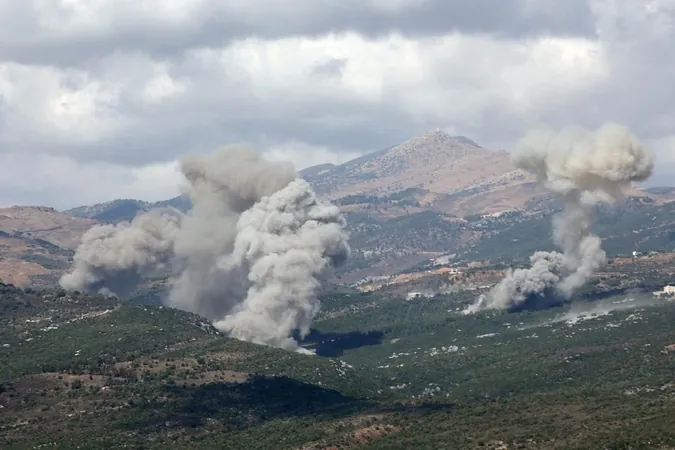
Escalation in Israel-Hezbollah Conflict: Deadly Exchanges Intensify Amid Regional Tensions
2024-09-22
Escalation in Israel-Hezbollah Conflict
BEIRUT/CAIRO - The ongoing conflict between Israel and Hezbollah has escalated dramatically, with both sides exchanging heavy fire as of September 22. Israeli air forces bombarded southern Lebanon with unprecedented intensity, marking the most significant military response in almost a year of strife. In retaliation, Hezbollah targeted various military sites in northern Israel with a series of rocket attacks.
On September 21 alone, the Israeli military reported striking approximately 290 targets, dismantling thousands of Hezbollah rocket launchers. Israeli officials have declared their intent to persist with these strikes against the Iran-backed militant group. As a precautionary measure, schools were closed in northern Israel and gatherings were restricted throughout the region, including the Israeli-occupied Golan Heights.
In contrast, Lebanon's government did not issue any directives on September 22, leading to a sense of uncertainty among its citizens. The recent spike in hostilities has been partially attributed to Hezbollah’s decision to open a second front against Israel, coinciding with Israel’s ongoing military operations in Gaza that began following a deadly October 7 assault by Hamas.
Throughout the night, multiple rockets and missiles were launched from Lebanon and Iraq towards Israel, many of which were intercepted by the country’s defense systems according to military sources. Notably, residential areas were affected, with one house near Haifa sustaining significant damage. Although no fatalities have been reported, there were injuries as civilians were urged to remain near bomb shelters.
One major target for Hezbollah was the Israeli Ramat David Airbase, which was subjected to a barrage of missiles—the most extensive strikes claimed by the group since the commencement of hostilities. Furthermore, an Iraqi militia official indicated that they also executed drone and cruise missile assaults against Israel on September 22 as part of a coordinated effort with Hezbollah.
The deteriorating situation has raised alarm bells that the conflicts in Gaza and Lebanon may expand and threaten regional stability. Jeanine Hennis-Plasschaert, the UN's special coordinator in Lebanon, expressed grave concern, indicating that the region is teetering on the brink of catastrophe, and reiterated that a military approach will not ensure safety for either side.
The escalating cycle of violence followed two days after an Israeli airstrike that killed 45 individuals, including high-ranking Hezbollah officials. This marked the deadliest Israeli operation in the conflict's current phase, targeting a gathering of Hezbollah leaders in Beirut's suburbs. Among the deceased were notable figures such as Ibrahim Aqil and commander Ahmed Wahbi. Following this, Israel claimed significant damage to Hezbollah’s military command structure.
Amidst these tensions, Israel's Defense Minister, Yoav Gallant, announced a new phase of warfare along the northern border, affirming that military actions would persist until the safety of northern residents is restored. In the wake of these hostilities, tens of thousands have fled their homes on both sides of the border, underscoring the humanitarian implications of the conflict.
As the situation continues to escalate, the region watches closely, with at least 84 lives lost in Lebanon over the past week, contributing to a total exceeding 750 casualties since the conflict reignited. The battle lines have become more than just geographical—they resonate with the ongoing regional struggles and the complex intersections of politics, identity, and military power.
As tensions persist, the international community is urged to closely monitor the developments and address the root causes of the conflict to avert further escalation and humanitarian crises.




 Brasil (PT)
Brasil (PT)
 Canada (EN)
Canada (EN)
 Chile (ES)
Chile (ES)
 España (ES)
España (ES)
 France (FR)
France (FR)
 Hong Kong (EN)
Hong Kong (EN)
 Italia (IT)
Italia (IT)
 日本 (JA)
日本 (JA)
 Magyarország (HU)
Magyarország (HU)
 Norge (NO)
Norge (NO)
 Polska (PL)
Polska (PL)
 Schweiz (DE)
Schweiz (DE)
 Singapore (EN)
Singapore (EN)
 Sverige (SV)
Sverige (SV)
 Suomi (FI)
Suomi (FI)
 Türkiye (TR)
Türkiye (TR)